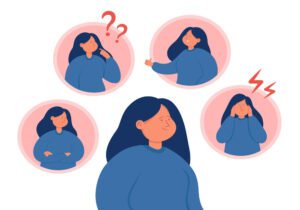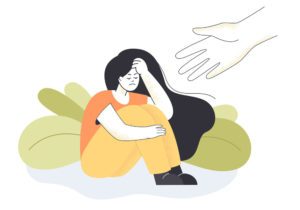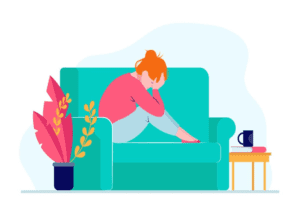5 Simple Mental Health Practices for Your Everyday Life: Nurturing Your Body & Mind
This article has been researched and written by Bruna Moubarak. AI has not been used in producing this article.
In today’s fast-paced world, it’s becoming increasingly evident that we need to place our mental health at the forefront. By seamlessly weaving simple yet powerful practices into your daily routine, you can significantly boost your overall well-being.
Here are five accessible strategies to support mental health and promote nervous system regulation in your everyday life:
1. Regular Physical Activity
Incorporate physical activity into your daily routine in whatever way feels enjoyable and accessible to you. Ride your bike to work, take a brisk walk around your neighborhood or on the beach, stretch often, and dance to your favorite music whenever you can. Even small bursts of activity throughout the day can help boost your mood and reduce feelings of anxiety and stress.
2. Mindful Breathing Exercises
Start your day with a five-minute breathing exercise. Find a comfortable seat, close your eyes, and take slow, deep breaths. Inhale deeply through your nose, feeling your lungs expand, then exhale slowly through your mouth, releasing tension. Repeat this process, focusing on the sensation of your breath moving in and out of your body. You can also practice mindful breathing during moments of stress or overwhelm to help calm your nervous system and regain a sense of balance. If you’re ever in a crunch, YouTube has many breathing exercise videos you can follow.
3. Practice Gratitude
Keep a gratitude journal and take a few minutes each day to write down three things you’re grateful for. These can be simple things like a cozy bed, a warm cup of coffee, or a beautiful view you recently witnessed. Cultivating an attitude of gratitude can shift your focus away from your worries and can foster a sense of contentment.

4. Set Boundaries and Prioritize Self-Care
Identify your personal boundaries and communicate them assertively to others. This might necessitate the help of a professional; or at the very least some time to yourself. Allow yourself to say no to commitments that drain your energy, monitor your screen time, and prioritize activities that nourish your mind, body, and spirit. Taking care of yourself is not selfish—it’s essential for maintaining your mental and emotional health.
5. Connect with Others
Make an effort to cultivate meaningful connections with the people around you. Reach out to friends and family members regularly, whether it’s through a phone call, a video chat, or an in-person visit. Join a club or group based on your interests to meet new people and expand your social network. Engaging in positive social interactions can boost your mood, reduce feelings of loneliness, and increase your overall sense of belonging and connection.
By integrating these simple mental health strategies into your daily routine, you can support your nervous system and enhance your overall well-being. Keep in mind that even minor adjustments can yield significant long-term benefits. Make your mental health a priority and show yourself kindness as you navigate life’s challenges. If you find yourself struggling, don’t hesitate to seek support from a mental health professional, such as a therapist in Dubai.
Article prepared by Bruna Moubarak.
5 Simple Mental Health Practices for Your Everyday Life: Nurturing Your Body & Mind
In today’s fast-paced world, it’s becoming increasingly evident that we need to place our mental health at the forefront
Ways to Reduce Anxiety in 2024
As we say farewell to 2022 and usher in the New Year, we look towards the future. With New Year’s resolutions on the docket, many of us are striving to achieve a calm life …
Navigating Compassion Fatigue in the Digital Age: A Call to Prioritize Mental Well-Being
Amid the constant stream of information and images that flood our screens, the toll on our mental well-being can be …
The Link Between Anxiety and Overeating
All of us have encountered moments of stress and unease throughout our lives. These feelings of anxiety not only bring…
10 Steps To Fix A Toxic Relationship
Every relationship has its fair share of ups and downs, but when toxicity creeps in, it can become a serious challenge. Toxic relationships can be emotionally draining and detrimental to our overall …
Exploring the Benefits of EMDR Therapy for Anxiety and Depression
Anxiety and depression are two of the most common mental health disorders worldwide, affecting millions of people every year. While traditional talk therapy and medication can be …
Health Effects of Untreated Depression
It’s very common to feel sadness at one point or another in our life. Depending on your specific circumstances, you may even feel …
Psychologists vs. Psychiatrists – What’s the Difference?
Clients shouldn’t have to jump through hoops to understand who the perfect candidate is for treating their emotional and/or behavioral struggles. Yet, understanding the type of provider you should see during …
Gentle Parenting: What is it and How to Try it Yourself
When it comes to raising children, no one has all the answers. Every parent and child have unique challenges and needs. Navigating these individual circumstances along with ever-changing environments, such as school …
How to Improve Your Relationship with Your Children – A Psychologist’s Guide
The modern family’s lifestyle leaves us shuffling from school to sports practice, family events, visiting friends, and everything in between. As society evolves to become more on-the-go and technologically advanced, w…











